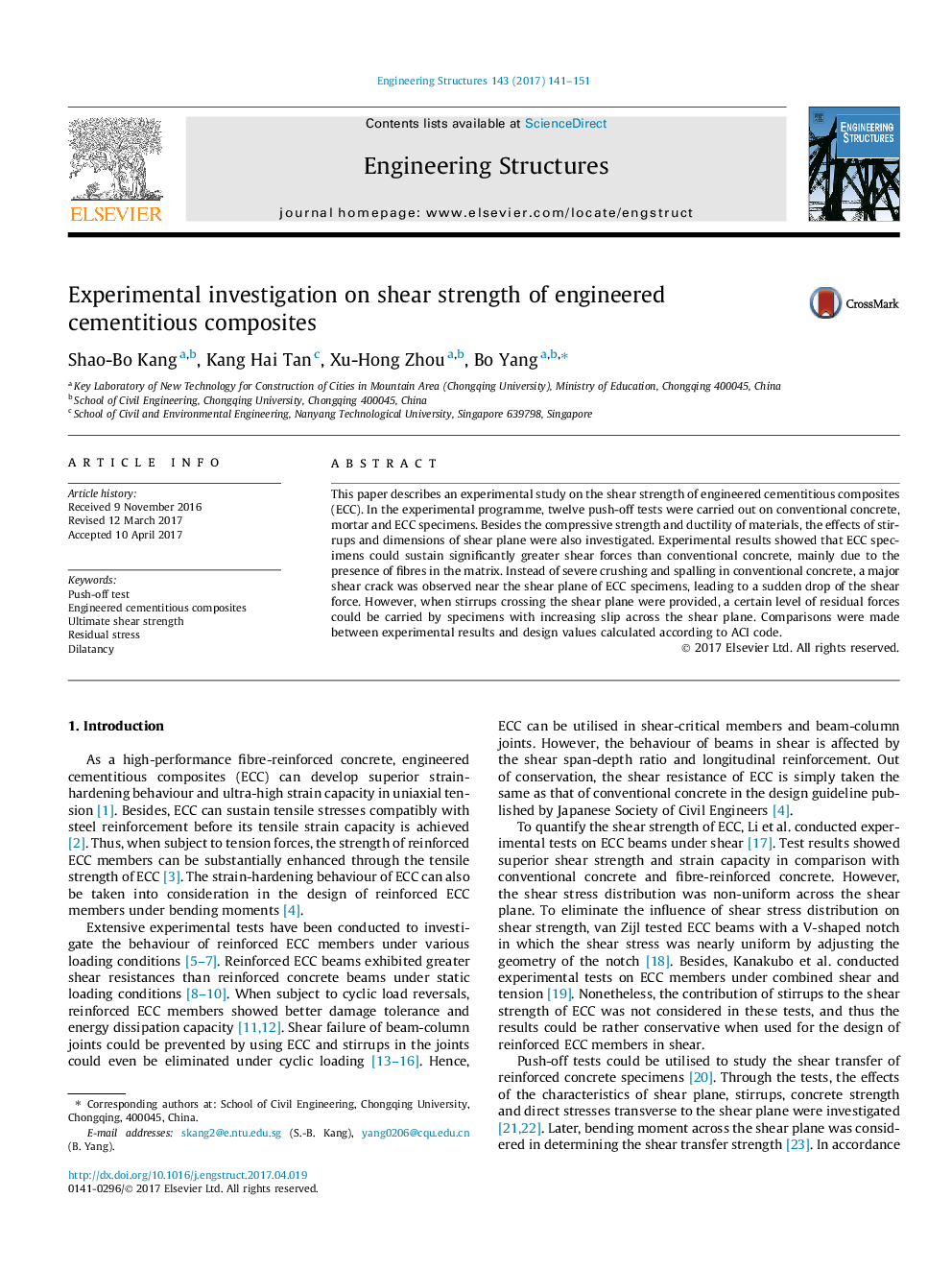| Article ID | Journal | Published Year | Pages | File Type |
|---|---|---|---|---|
| 4920061 | Engineering Structures | 2017 | 11 Pages |
Abstract
This paper describes an experimental study on the shear strength of engineered cementitious composites (ECC). In the experimental programme, twelve push-off tests were carried out on conventional concrete, mortar and ECC specimens. Besides the compressive strength and ductility of materials, the effects of stirrups and dimensions of shear plane were also investigated. Experimental results showed that ECC specimens could sustain significantly greater shear forces than conventional concrete, mainly due to the presence of fibres in the matrix. Instead of severe crushing and spalling in conventional concrete, a major shear crack was observed near the shear plane of ECC specimens, leading to a sudden drop of the shear force. However, when stirrups crossing the shear plane were provided, a certain level of residual forces could be carried by specimens with increasing slip across the shear plane. Comparisons were made between experimental results and design values calculated according to ACI code.
Keywords
Related Topics
Physical Sciences and Engineering
Earth and Planetary Sciences
Geotechnical Engineering and Engineering Geology
Authors
Shao-Bo Kang, Kang Hai Tan, Xu-Hong Zhou, Bo Yang,
